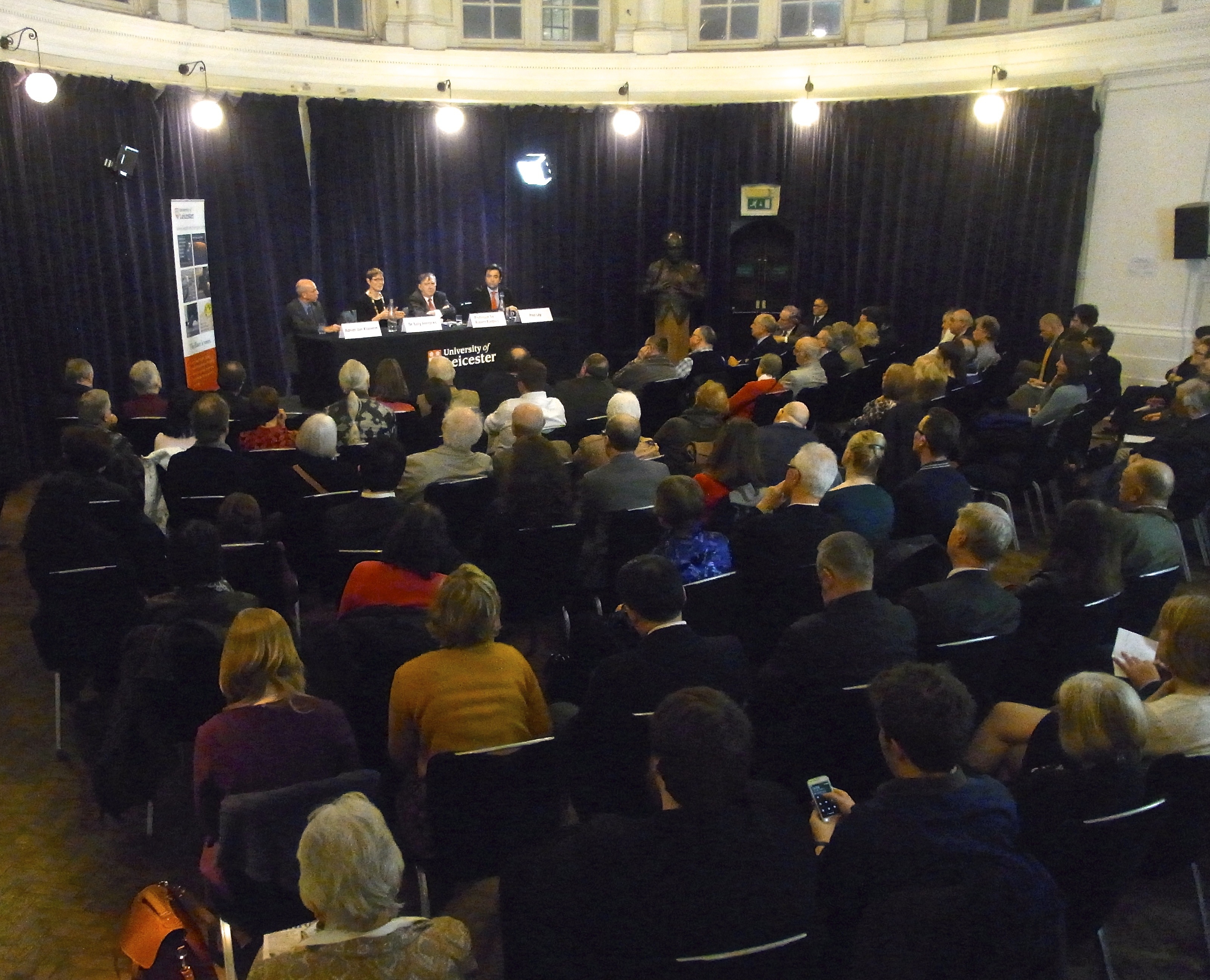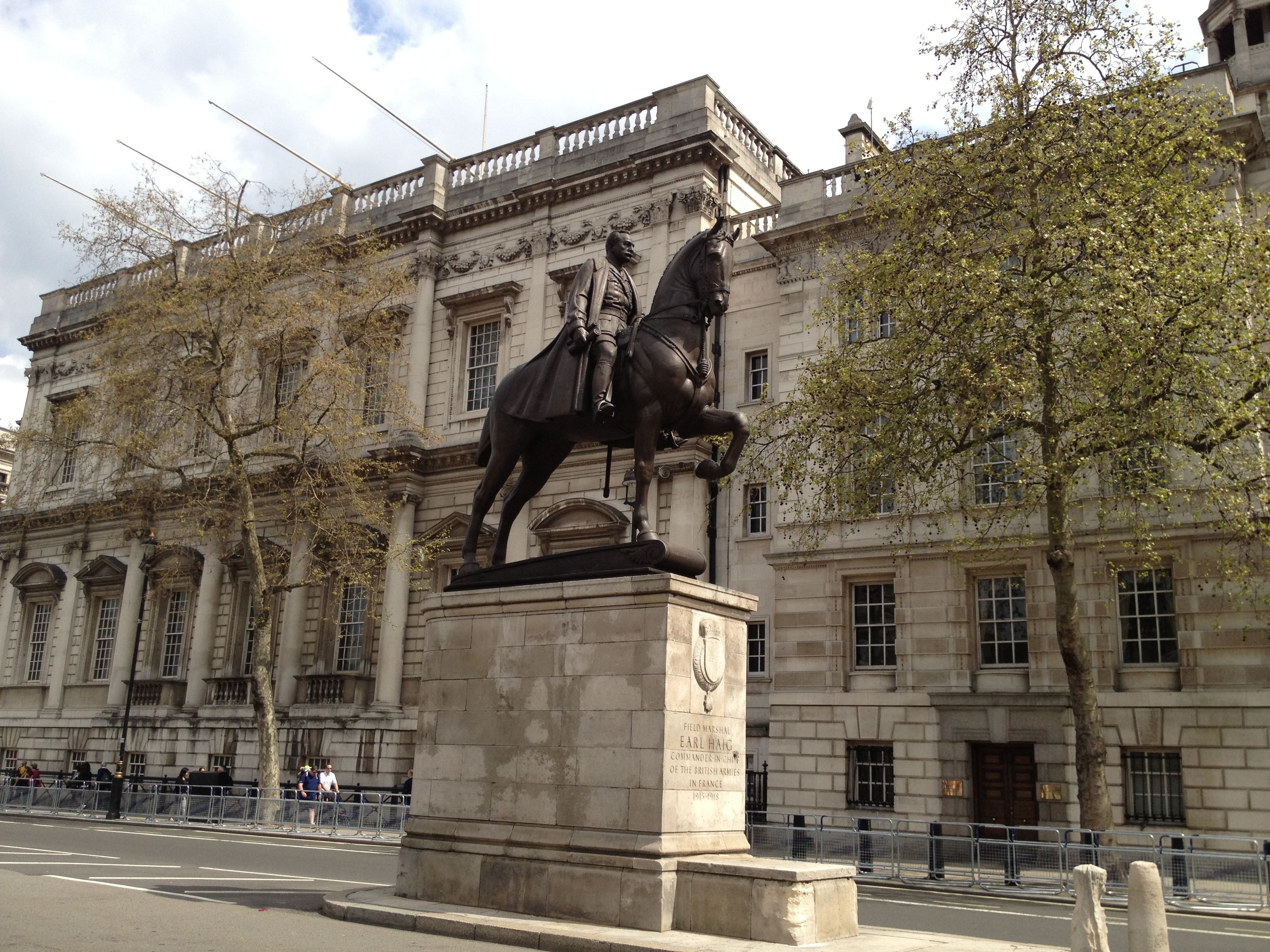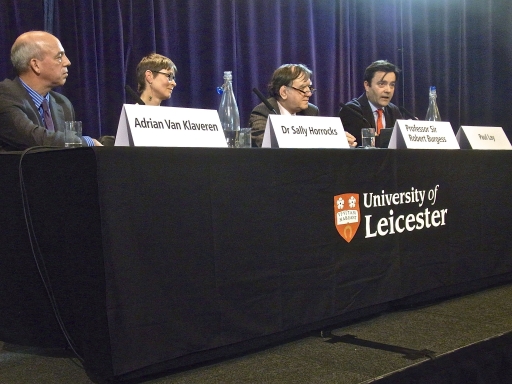Centenary News Deputy Editor, Mike Swain, reports from a debate held in Whitehall, London on the First World War Centenary and whether it is relevant to our lives today.
The Centenary of World War One is a great chance to overturn some of the myths which have grown up about the conflict, a debate in London heard.
The centenary should be used to broaden our knowledge of the war and recognise it as a global conflict and not just be fixated with trenches, mud and barbed wire.
Experts said the contribution of people from places such as India, Bangladesh, Africa, the Middle East, and Brazil often went unrecognised.
The Great War: Lest We Forget? debate, arranged by Leicester University, was organised in a BBC Question Time format with a panel of three answering questions and contributions from an audience.
It was held in the Duke of Wellington Hall (below) at Sixty One, Whitehall, a historic building overlooking thestatueofField Marshal Earl Haig,Commander-in-Chief of British forces on the Western Front from 1915to 1918.

The panel was made up of Paul Lay, Editor of History Today; Dr Sally Horrocks, Lecturer in Modern British History atthe University of Leicester;and Adrian Van Klaveren, BBC Controller, Great War Centenary. It was chaired by Professor Sir Robert Burgess, Leicester University’s Vice-Chancellor.
The four year centenary will change peoples views of what happened in the war as new facts and personal stories emerge, it was claimed.
Mr Lay said: We have this wonderful opportunity to overturn all these myths about the first world war.
We have become obsessed by ourselves. This is the opportunity to broaden the debate and broaden our knowledge of the war.
There is much more willingness to take on the wider vistas of World War One to think about the globalisation, to think beyond ourselves.
I do feel optimistic that this is the moment to really start thinking about the first world war.
He had been worried that there would be World War One fatigue. But he had found diverse audiences coming to debates and much more women than he would have expected.
Different world
But it was important to understand the world was different in 1914 and not to judge it through modern eyes.
There was no television, radio, telephones and there was a shared Christian morality.
Its very important that we think about what the people were like then, how they thought, how they lived, not just in this country but beyond.
There are lessons we can learn from that and not be obsessed by relevance.
He said he did not believe in a modern left-right split in viewing the outcome of the war. A lot of the ideas that the war was bad for Britain are put forward by right wing historians.
He urged people to really think against the grain and to read as much as possible.
One of the most remarkable things about the First World War is the really brilliant and accessible books there have been on it in the last 40 years and there is going to be a lot more really fascinating stuff coming out.
I just say connect with that and then the debate over the next four or five years will really blossom and we will have a very different and much fuller and much rounder and a much more interesting perspective on the First World War than we have had in the past.

Sixty OneWhitehall: thevenue for Leicester University’s First World War debate,overlooking Field Marshal Haig’s statue
Ten myths
Adrian Van Klaveren said aBBC articleabout ten myths of the First World Warhad been viewed three million times.
He said perceptions of the war had been changed 50 years ago with satirical productions like Oh What a Lovely War.
This became stuck as our way of thinking about the war. We became fixated by trenches, mud, barbed wire, but lost something. There is so much more to explore.
But he said it was difficult to understand what was happening today in places like the Middle East without understanding what happened in the First World War.
The reason we will be able to reach such large audiences on this is because people do see a relevance to how they live now, the country we now live in and the world in which we now live. It is finding a way of telling that story accurately, fairly, which is something which will draw people in.”
With the right mix of excellent history, the power of personal stories and combining them in the right way then this centenary will leave people with a very different perspective.
Diverse histories
Dr Sally Horrockssaid This is a great opportunity to get the nuances and diversity and attack those myths that try to collapse the war into one view.
She added that wars like the conflict in Syria showed how in the modern world problems in one country could still risk growing into a wider conflict. And students from Iraq/Kurdistan saw World War One as very relevant to shaping their history.
A lot of people here see the war through the war poets and the Western Front. This centenary is just a great opportunity to share diverse histories.
University CollegeLeicester was established in 1918 as a living memorial to the fallen of Leicester and Leicestershire. The university motto is That they may live,
You can join the debate online at Leicester Exchangesor on twitter#LExGreatWar.
Posted by: Mike Swain, Centenary News
Images: Peter Alhadeff, Centenary News
